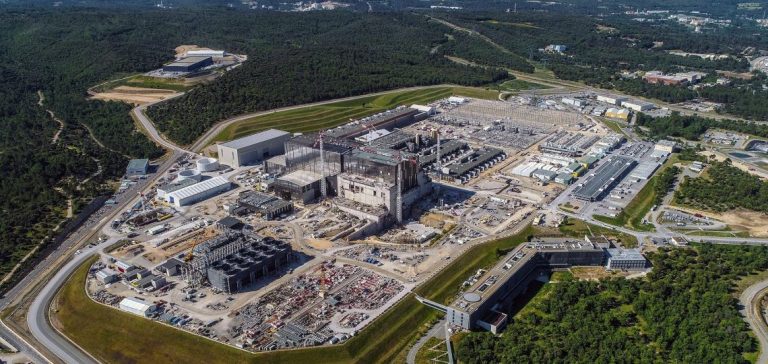The international experimental nuclear fusion reactor ITER, located in southeastern France, is facing significant delays and increased costs. Despite these challenges, its Director General, Pietro Barabaschi, emphasized the necessity of continuing the project. During a recent visit to Russia, he compared the situation to a marathon that must be completed, even if the pace slows down.
ITER, which stands for International Thermonuclear Experimental Reactor, is a collaborative project launched in 1985 and includes seven members: China, South Korea, the United States, India, Japan, the European Union, and Russia. The goal is to master nuclear fusion, a process different from the fission used in current power plants, to replicate the reaction that occurs at the heart of the Sun. This type of energy is presented as safe and without the production of long-lived radioactive waste.
Delays and Rising Costs
This summer, the ITER project announced a delay of at least eight years to reach its first crucial stage, as well as an increase in its cost by several billion euros. These difficulties are related to technical problems and the inherent complexity of a project of this magnitude. Pietro Barabaschi acknowledged these obstacles but emphasized the importance of staying on course. According to him, it is essential to maintain a certain momentum in the research to achieve the set objectives.
During his trip to Russia, he stated that maintaining the project despite the tense international situation is akin to trying to cross the sea in stormy weather. Geopolitical tensions, particularly between Russia and Western countries following the conflict in Ukraine, have not fundamentally changed the project’s dynamics, he affirmed. He highlighted that engineers and scientists continue to collaborate, demonstrating resilience in the face of current challenges.
International Cooperation Despite Tensions
Russia’s participation in the ITER project continues despite the economic sanctions imposed by Western countries. These sanctions aim to penalize Russia for its military intervention in Ukraine, but they have not interrupted its contribution to ITER’s development. Pietro Barabaschi emphasized that the project has not experienced a fundamental change in its international cooperation structure. He also mentioned administrative and logistical difficulties, particularly related to the shipment of components, but insisted on the continuity of collective work.
Nuclear fusion is considered a potential solution to global energy needs, offering a clean and nearly inexhaustible energy source. ITER represents an unprecedented effort of scientific collaboration among numerous nations. Despite technical and political challenges, the project is advancing thanks to the commitment of international partners. The Director General expressed his pride in seeing that engineers and scientists can still work together, despite a complex global context.
The Strategic Importance of Nuclear Fusion
Mastering nuclear fusion represents a major challenge for the planet’s energy future. Unlike nuclear fission, fusion does not generate long-lived radioactive waste and poses fewer security risks. The success of the ITER project could pave the way for a new era of sustainable energy production. Current delays and cost overruns are seen as temporary obstacles in a very long-term project.
Pietro Barabaschi compared the project to a marathon, where it is crucial to keep moving forward, even if the pace needs to be adjusted. Stopping would mean compromising decades of research and investment. He encouraged stakeholders to maintain their commitment, emphasizing that the potential benefits of nuclear fusion justify the efforts and resources dedicated to the project.
Future Perspectives of the ITER Project
Despite current challenges, the future prospects of the ITER project remain promising. International partners continue to provide the necessary resources and support to advance. Significant technological advancements are expected, which could revolutionize the energy sector. Current delays are being used to improve processes and solve technical problems, thereby strengthening the project’s long-term viability.
The scientific community is closely monitoring ITER’s progress, considering that its results will have a major impact on nuclear physics research. Involved governments also see ITER as a strategic opportunity to ensure their energy independence. Pietro Barabaschi remains optimistic about the project’s ability to overcome obstacles, believing that international collaboration is the key to success.






















